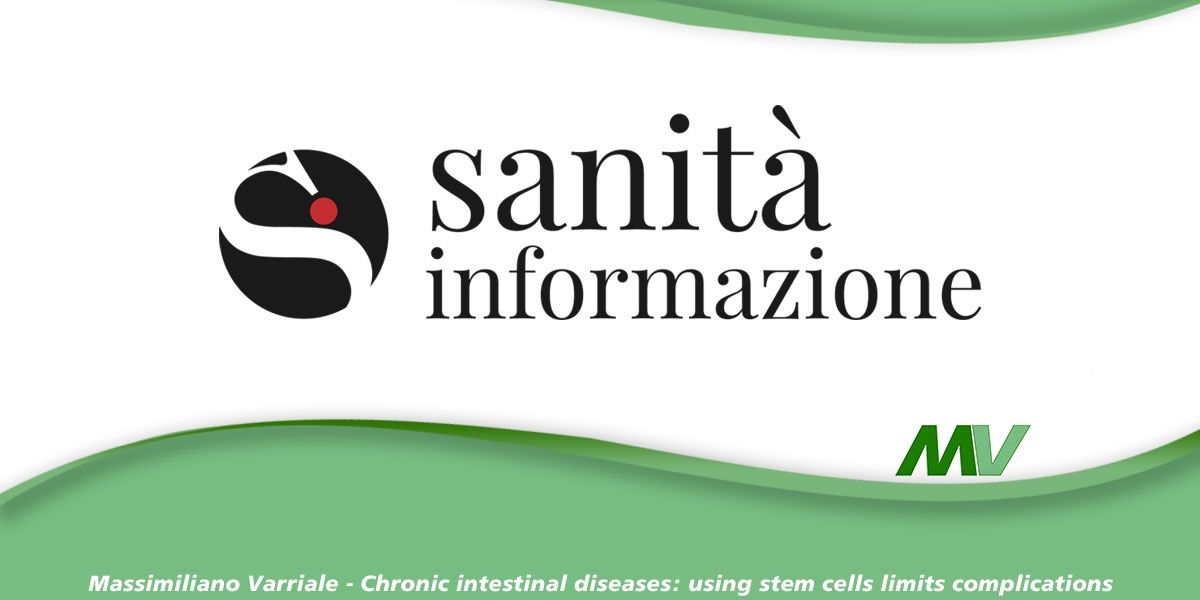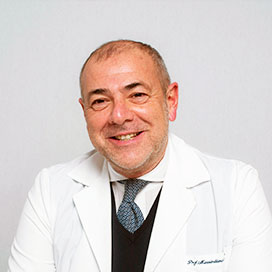Chronic intestinal diseases: using stem cells limits complications
Varriale (proctologist): 'Stem cells can make an important contribution to the treatment of ano-vaginal fistulas. By using them, we can perform minimally invasive surgical techniques that avoid more important interventions, such as packing an ostomy".
Less invasiveness, shorter post-operative stay and better prognosis. These are the ingredients of the success that the surgical team of Professor Massimiliano Varriale, proctologist at the Sandro Pertini Hospital in Rome, has achieved through the use of stem cells. 'Stem cells can make an important contribution to the treatment of certain complications that can occur in patients suffering from chronic intestinal diseases,' explains Professor Varriale. By using them, we can perform minimally invasive surgical techniques that lead to improvement or even cure, avoiding more important and, above all, disabling surgeries for the patient, such as the packing of an ostomy'.
With stem cells fistula closure is minimally invasive
Thanks to the use of stem cells, Professor Varriale's surgical team has obtained excellent results in the treatment of fistulas that, in women suffering from chronic intestinal diseases, can appear in the ano-vaginal area. 'Such fistulas,' the proctologist explains, 'are difficult to manage and present a rather high risk of recurrence. The use of stem cells allows surgical techniques to close fistulas, whether anal-complex or ano-vaginal fistulas, in the most direct way, with excellent results. Thanks to this technique, patients can maintain normal intestinal function, avoiding the need to undergo surgery for an ostomy, which is much more complex and disabling, both in the short and long term'.
Stem cell harvesting
Stem cells are taken directly from the patient's body. "Fat is taken from those areas of the body that are richest in it," says Varriale, "such as the anterior abdominal wall, buttocks, hips, inner thighs. The fat obtained is microfiltered and a preparation characterised mainly by stem cells is obtained. The resulting hypofiller is then inoculated directly into the fistula, all in an outpatient setting. The autologous stem cell graft results in compression closure of the fistula, thanks to the formation of scar cells originating from the grafted stem cells'.
The study
As well as allowing the patient to return home within a few hours, this surgery also significantly reduces the risk of recurrence. "And should a recurrence occur,' the proctologist emphasises, 'there is no contraindication to performing the operation again, even after a short time. Professor Massimiliano Varriale is a forerunner of this minimally invasive surgical technique, so much so that he has been engaged in a scientific study on the subject for five years. "The research was conducted on a sample of women suffering from chronic intestinal diseases who developed ano-vaginal fistulas and underwent closure surgery with stem cells, closure certified by magnetic resonance examinations. The study, which has been ongoing for five years,' the specialist concludes, 'has offered very satisfactory results, which are close to publication.

